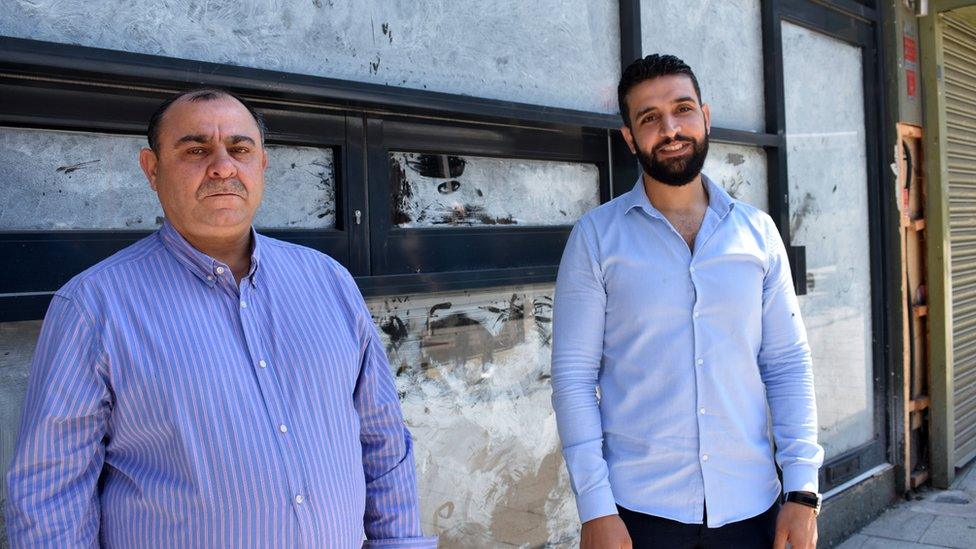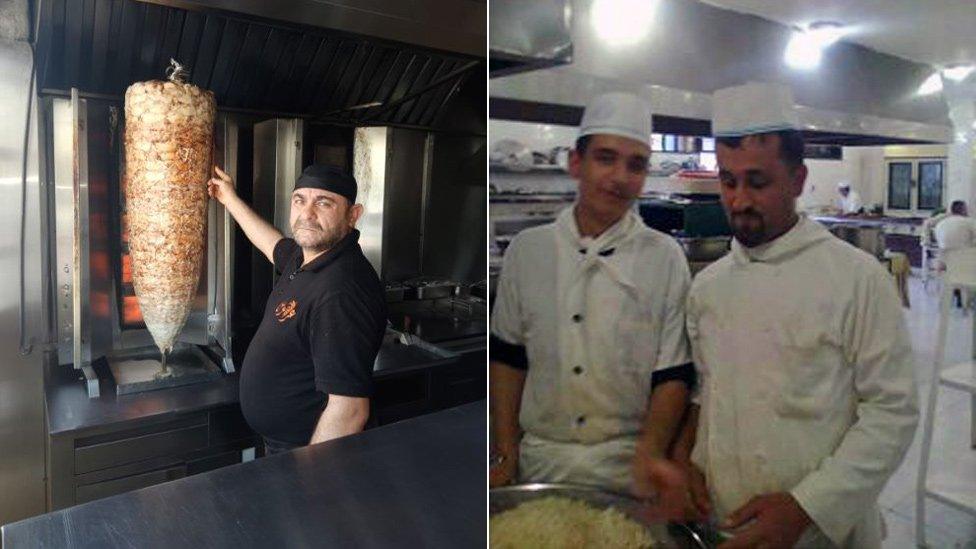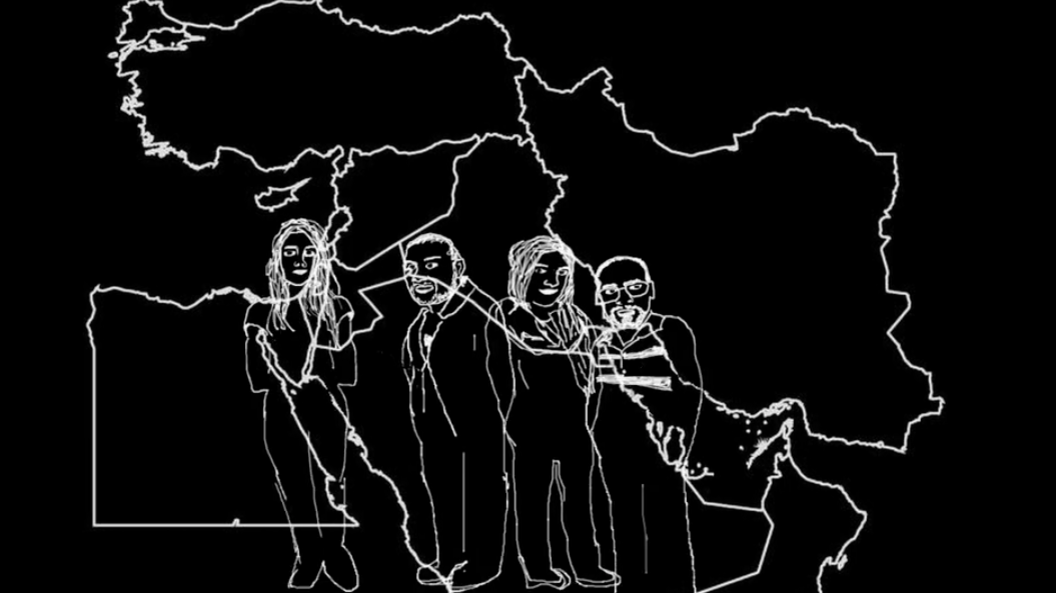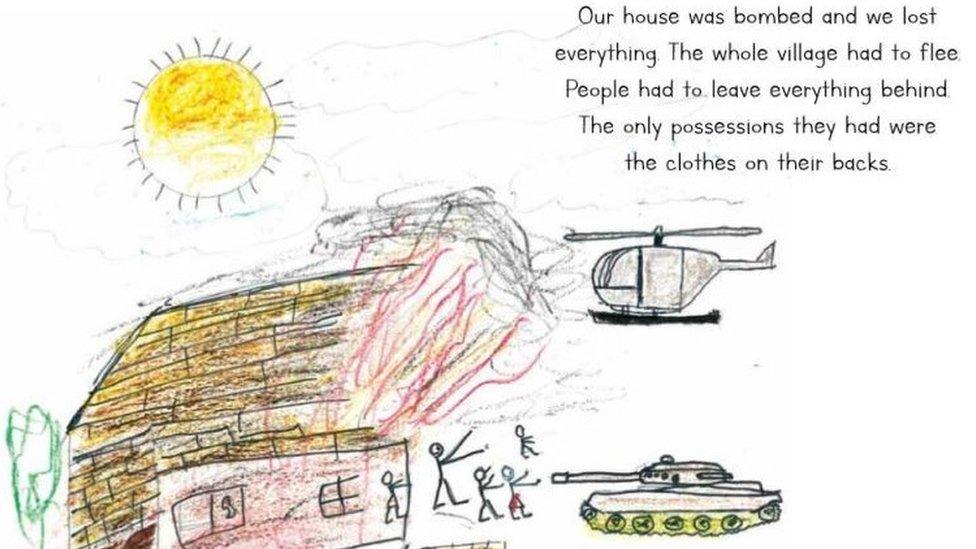Syrian refugee chefs plan to open Coventry restaurant
- Published

Ahmad Alshika and Taha Alabdullah hope to open Shwarma Shack on Trinity Street in the autumn
Two Syrian chefs, who fled the war-torn city of Homs before being resettled in the UK, are planning to open a "dream" restaurant "for all communities."
Friends Taha Alabdullah and Ahmad Alshika worked together in the Syrian city before fleeing and "by chance" were reunited in Coventry.
They hope their business will employ other refugees living in the city.
"It was difficult when the war came and then to come to a new country," Mr Alabdullah said.
The 33-year-old fled to the United Arab Emirates before making Coventry a home to his family in 2017 as part of the Syrian resettlement scheme, external.
"In Homs were were scared, we wanted to leave so our families could come to safety," he said. "When we came here we started from zero with a new life.
"Great Britain helped us get to here. It gives us a safe place."
Mr Alshika, 47, joined him in the city two years later under the UN scheme.
"I got a call from Ahmad saying the UN were inviting him to Coventry - and so I said 'yes, it's very nice and the people are welcoming and maybe if you came we could do something like we did at home,'" explained Mr Alabdullah.
A planning application has been submitted to turn a former nightclub into a restaurant in the city's Trinity Street offering authentic Syrian food, which will be run by the pair.

Ahmad Alshika (pictured left) and Taha Alabdullah (middle) worked in the same restaurant in Homs for four years
"To open this business is our dream, to do something for all communities and show that we are here to do something and show our culture," Mr Alabullah told the Local Democracy Reporting Service.
They have been helped by local businessman Khalid Vania through his involvement with the Coventry Muslim Forum, which supports Syrian refugees settled in the city.
"They are so humble and have a skill and used to run their own restaurants which they had to leave," he said.
He said the men had occasionally talked of life during the war describing bombs landing during family barbeques, and having to keep their children safe.
Mr Alabdullah said he has nothing but praise for the help and support given to him by the council and other organisations in the city.
"Now we are here and we have made new friends and we are building our life back up," he said.
"We want to be active in the community so we are trying to build ourselves here and introduce a kind of new food for Coventry."

Follow BBC West Midlands on Facebook, external, Twitter, external and Instagram, external. Send your story ideas to: newsonline.westmidlands@bbc.co.uk , external
Related topics
- Published2 May 2023

- Published5 October 2020

- Published7 December 2018
